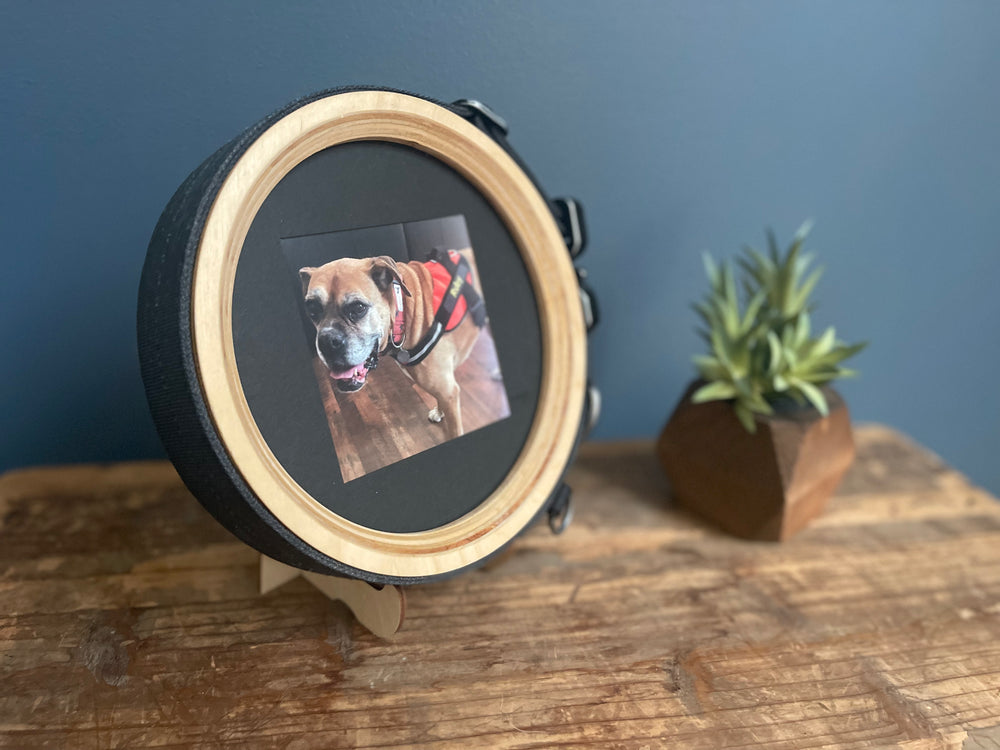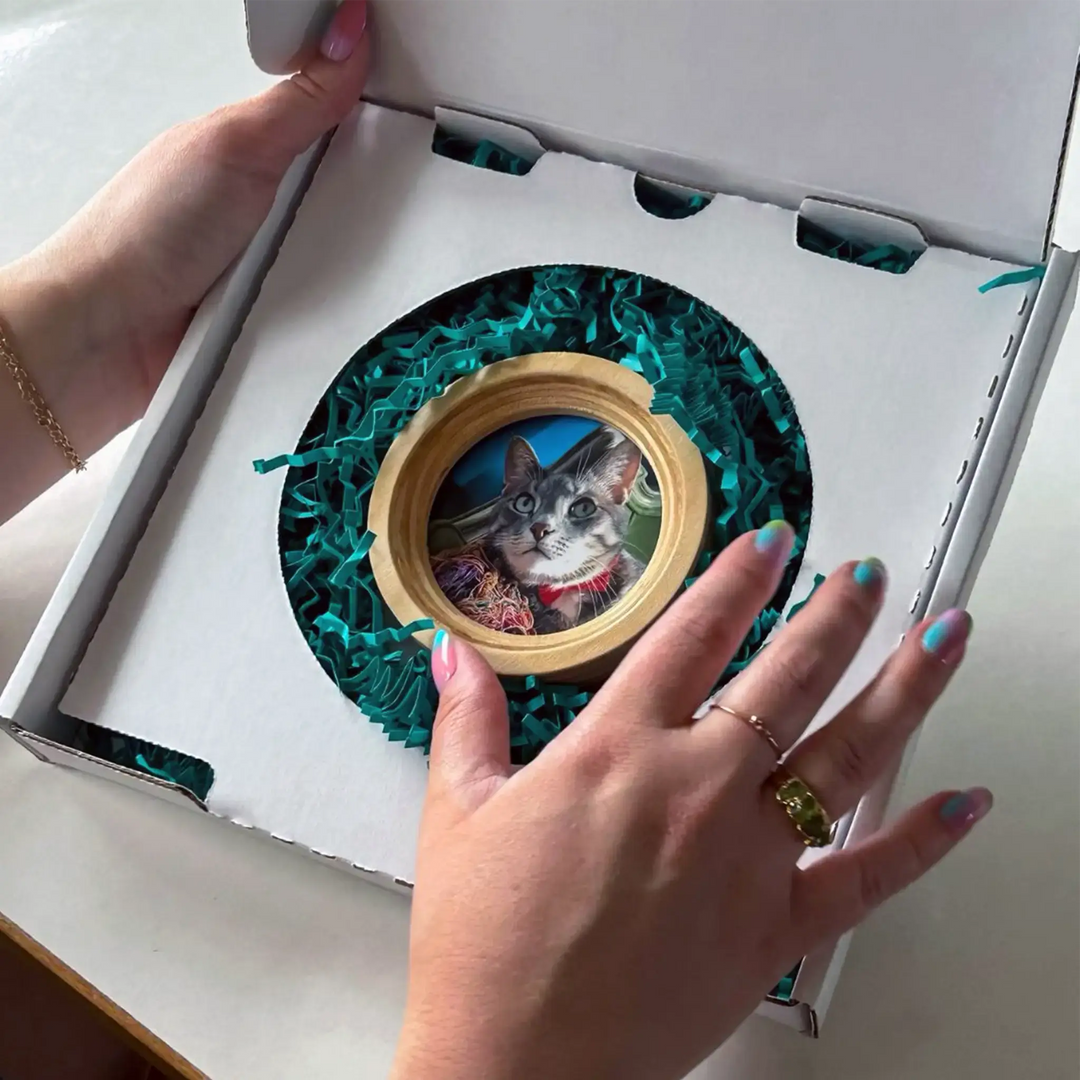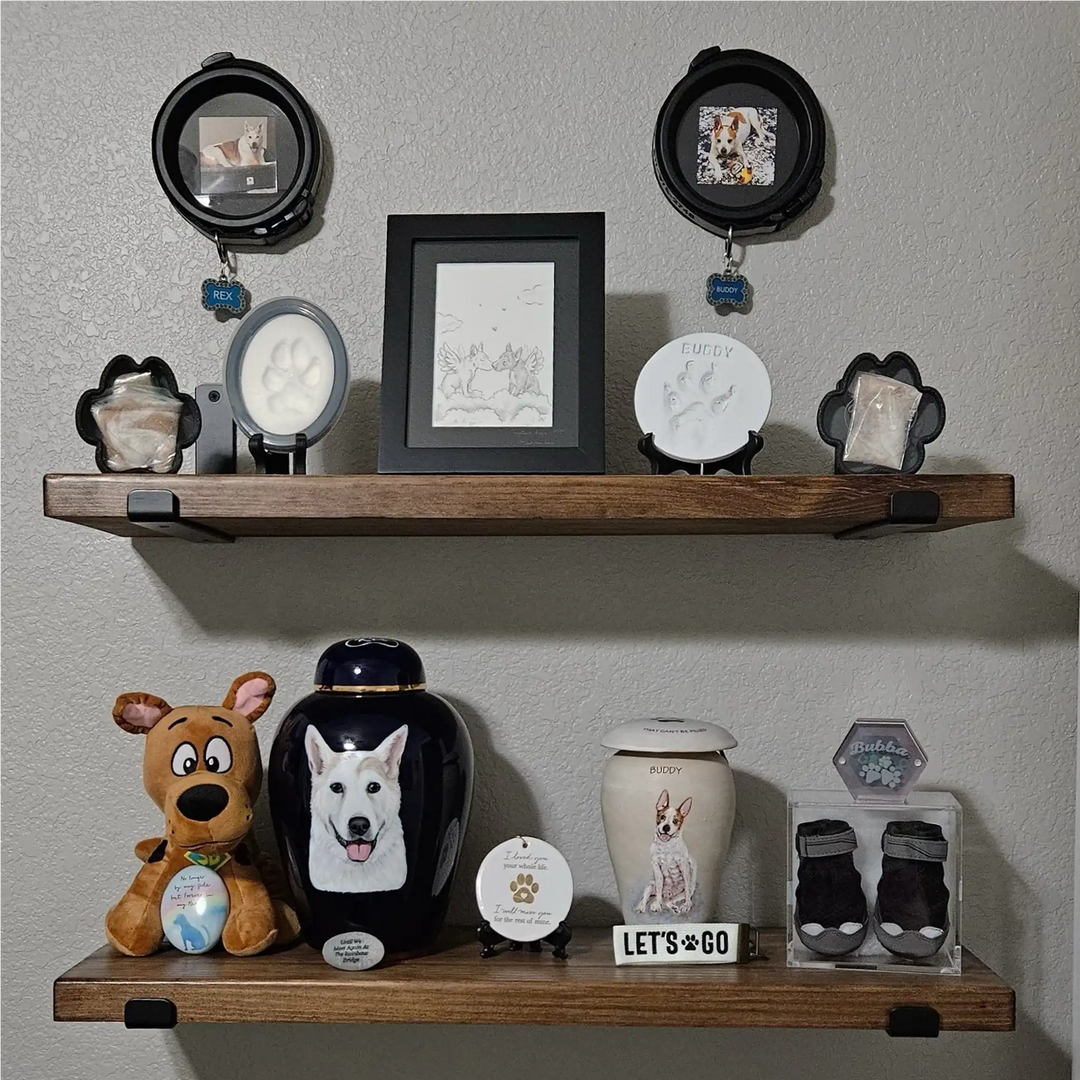Supporting a Friend Through Pet Loss: What to Say, Do, and Avoid
Supporting a friend who’s grieving the loss of a pet can be challenging, especially if you’re unsure what to say or do. The bond we share with our pets is unique, and when they pass, it can feel just as painful as losing a family member.
Here are some tips to help with supporting a friend through pet loss:
What to Say:
-
“I’m so sorry for your loss.” Acknowledge their grief with compassion. Sometimes, just offering a simple, heartfelt message is enough.
-
“I’m here if you need to talk.” Let them know that you’re available to listen when they’re ready. Grieving pet parents often need a safe space to express their emotions.
What to Do:
-
Offer Practical Help: Take them a meal, help with their pet’s care (if they have other animals), or offer to run errands. Grieving can be exhausting, and small acts of kindness can provide comfort.
-
Give a Memory Gift: A thoughtful gift like a Halo Frame can be a meaningful way to help your friend honor their pet’s memory.
-
Check In Regularly: Grief doesn’t end after the funeral or memorial service. Continue to check in with your friend, even weeks or months later.
What to Avoid:
-
Avoid Minimizing Their Loss: Phrases like “It was just a dog” or “You can always get another one” can feel dismissive of their grief. Every pet is a family member, and their loss is deeply felt.
-
Don’t Force Them to Talk: If they’re not ready to share their feelings, don’t push. Be patient and let them open up when they’re ready.
Grief is a personal journey, and everyone copes differently. By offering your support and understanding, you can make a meaningful difference for your friend as they navigate their grief journey.
Helpful Tips from Lap of Love Veterinary Hospice
The content on this blog is not to be taken as advice. All information posted is for informational and educational purposes. It is not intended as a substitute for professional advice. Whisker & Fang management and staff are not responsible for how the information found here is used. If you need help, please seek professional counsel from a mental health professional.






Leave a comment